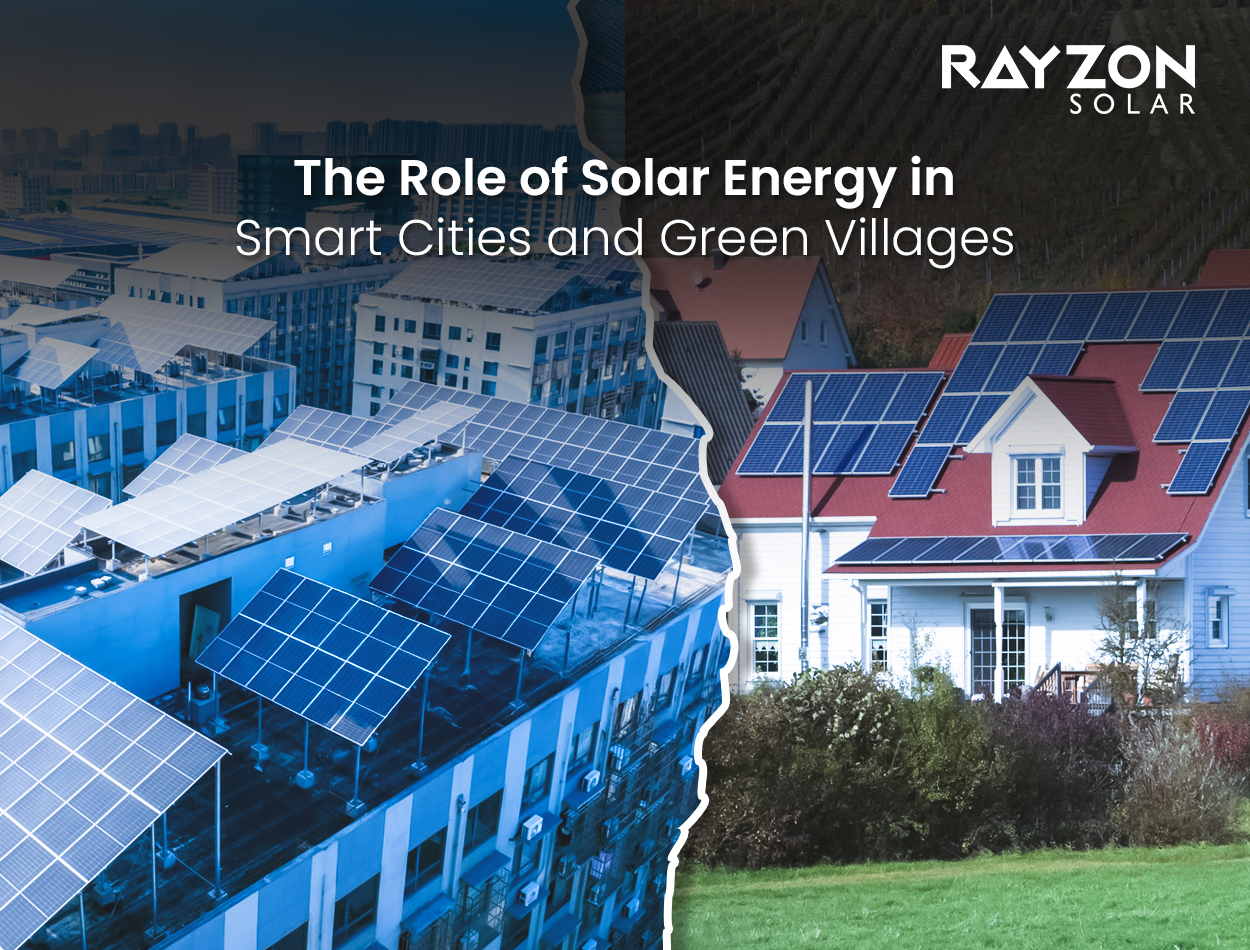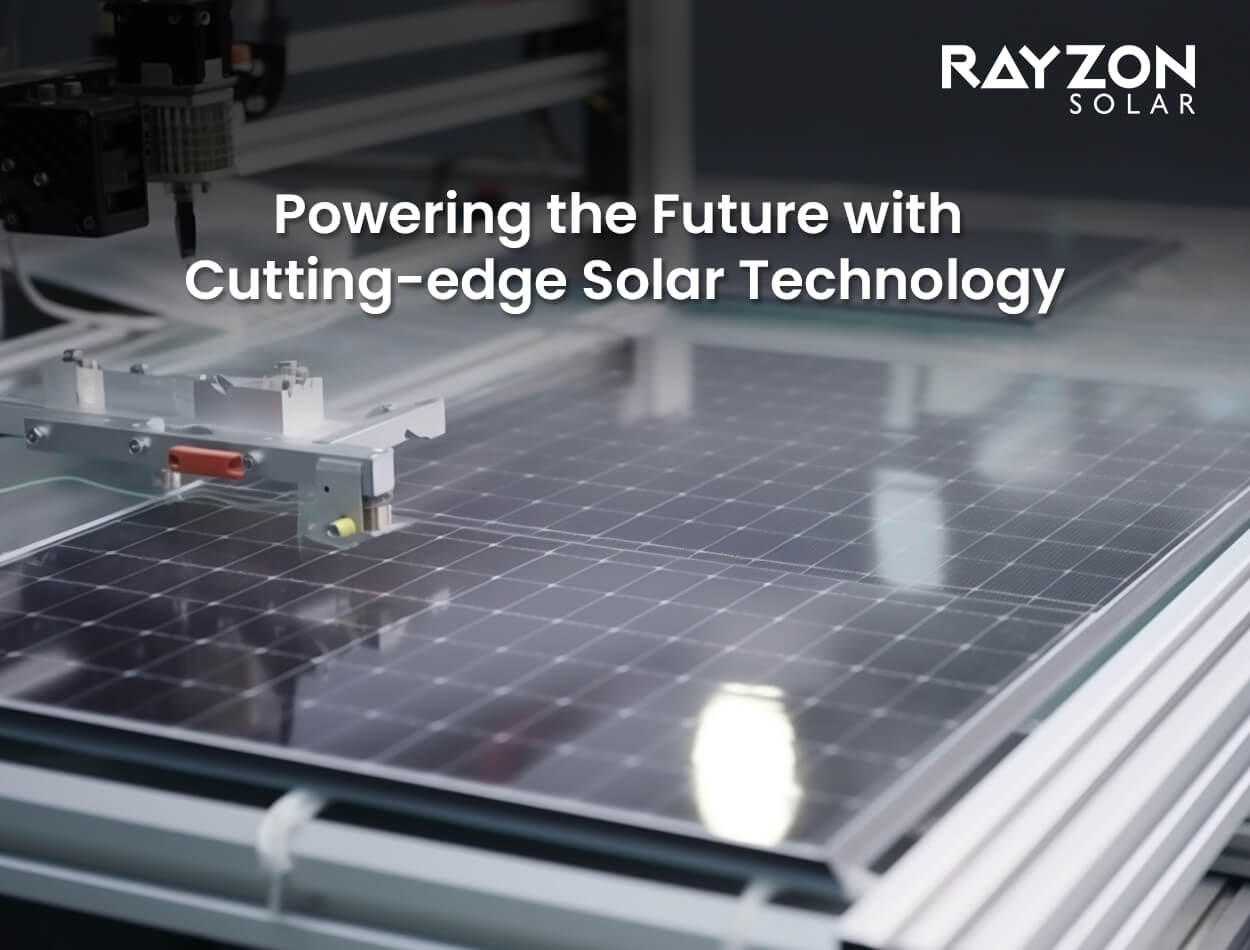
The Role of Solar Energy in Smart Cities and Green Villages
Introduction: Solar Energy in Smart Cities and Green Villages
Solar energy in smart cities is no longer a futuristic vision but a present-day reality shaping urban and rural landscapes across India. By integrating renewable energy for smart cities, India is building energy-efficient infrastructure that supports sustainable development. From solar for smart city projects to rural solar electrification, the adoption of solar solutions is revolutionising both urban and village life.
Smart cities are designed to optimise resources, reduce carbon footprints and create cleaner environments. The role of solar power for urban development is crucial as it enables energy independence, fosters modern infrastructure and supports initiatives like community solar. Likewise, solar-powered villages in India are empowering rural communities with reliable electricity, enhancing education and improving healthcare access.
1. The Rise of Solar Energy in Smart City Projects
Smart city projects thrive on technology-driven infrastructure that demands efficient, clean and cost-effective energy. Solar for smart city projects not only ensures energy sustainability but also reduces the reliance on non-renewable sources. The integration of solar energy for infrastructure like street lighting, smart grids and public transportation has become a key component of smart urban planning.
Moreover, the combination of digital technologies with clean energy for smart cities has resulted in innovative urban models. These cities prioritise green initiatives, with solar role in urban planning being at the forefront. To learn about the benefits of advanced solar technology, check this guide on solar panel innovations.
2. Green Villages Solar Solutions
Green villages are a shining example of how solar-powered villages in India are transforming lives. With rural solar electrification, previously underserved areas now enjoy an uninterrupted power supply for basic needs like lighting, irrigation and communication. Solar solutions for rural India, including solar water pumps and rooftop panels, are cost-effective alternatives for sustainable growth.
By adopting green villages' solar solutions, communities are becoming self-sufficient, lowering energy costs and reducing dependency on traditional grid systems. The government’s support and policies, like Surya Ghar Yojana, have played a vital role in this transformation.
3. Solar Power for Urban Development
Urban development requires a shift towards clean, decentralised energy sources. Solar power for urban development has emerged as the cornerstone of this shift, offering reliable power solutions for residential, commercial and industrial sectors. The installation of rooftop solar panels and solar parks is creating a cleaner and greener energy ecosystem.
Furthermore, cities that adopt renewable energy for smart cities are setting benchmarks in energy efficiency and environmental conservation. To explore how solar boosts property values, read Maximising.
4. Renewable Energy for Smart Cities
Renewable energy for smart cities is essential for building sustainable urban spaces. With increasing energy demands, integrating solar energy in smart cities ensures a low-carbon future. This shift reduces dependency on fossil fuels and aligns with India’s renewable energy goals for 2030.
The use of smart solar grids and energy storage solutions enhances reliability, ensuring a consistent power supply even during peak hours. Energy storage with solar is one of the key trends supporting this transformation.
5. Rural Solar Electrification and Its Impact
Rural solar electrification has brought significant social and economic changes to remote villages. Areas that once lacked reliable power now have access to electricity for schools, healthcare centres and small businesses. Solar energy for infrastructure, including solar-powered streetlights and community water systems, is improving living standards.
This electrification not only provides energy but also creates jobs and supports local enterprises. Farmers are also adopting solar-powered irrigation, reducing costs and increasing crop yields. Check how solar supports farmers.
6. Solar Energy for Infrastructure Growth
Modern infrastructure development relies heavily on sustainable energy solutions. Solar energy for infrastructure plays a vital role in powering construction sites, government buildings and public utilities. With rapid urbanisation, integrating solar energy in smart cities ensures that future developments remain eco-friendly and cost-efficient.
From solar rooftops on commercial buildings to large-scale solar parks, the adoption of clean energy technologies is rising. For industrial projects, ground-mounted solar systems offer robust solutions.
7. Solar-Powered Villages in India
Solar-powered villages in India are redefining rural living. By using solar solutions for rural India, these villages achieve energy independence and promote sustainability. From solar microgrids to standalone home systems, solar adoption is improving quality of life and encouraging eco-friendly practices.
Projects like PM-KUSUM Yojana have accelerated rural solar adoption, supporting farmers and reducing electricity bills.
8. Clean Energy for Smart Cities
Clean energy for smart cities is not just an environmental priority but an economic necessity. Solar energy systems reduce operational costs, enhance energy efficiency and promote a green economy. Initiatives like smart solar lighting and EV charging stations are becoming standard in city planning.
Additionally, solar energy aligns with India’s mission to create sustainable smart cities. Learn more about how solar reduces air pollution.
9. Solar Role in Urban Planning
The role of solar in urban planning is significant, as city designers incorporate solar panels into building codes, transportation systems and community projects. Rooftop solar systems are now a preferred choice for residential and commercial developments due to their long-term savings and environmental benefits.
Smart urban planners use solar-powered grids and IoT-enabled monitoring systems for maximum efficiency. Read the top things to look for in solar panels before investing.
10. Solar Solutions for Rural India
Solar solutions for rural India are designed to address challenges like a lack of grid connectivity, frequent power cuts and high diesel costs. Solar microgrids, off-grid systems and solar lanterns are helping rural households achieve energy independence.
By combining rural electrification with solar energy, India is bridging the urban-rural energy gap. Learn about off-grid solar living and its benefits for rural communities.
Conclusion
Solar energy in smart cities and green villages is a game-changer for India’s sustainable future. From solar for smart city projects to solar-powered villages in India, the impact is visible in every sector. By embracing renewable energy for smart cities and rural solar electrification, India is paving the way for a cleaner, greener and energy-independent nation.
For more insights, check our blogs on the benefits of solar energy and choosing the best solar panels.
FAQs About Solar Energy in Smart Cities and Green Villages
Q1. How is solar energy used in smart cities?
Solar energy in smart cities is used for powering streetlights, public transport, smart grids, residential rooftops and EV charging stations. It reduces energy costs and ensures sustainable urban development.
Q2. What are the benefits of solar-powered villages in India?
Solar-powered villages in India benefit from reliable electricity, reduced energy costs and independence from conventional grids. It supports rural education, healthcare and farming with solar water pumps and microgrids.
Q3. Why is solar energy essential for urban planning?
Solar energy is essential for urban planning as it integrates clean power into city infrastructure, supports smart grid technology and helps reduce carbon footprints while meeting increasing energy demands.
Q4. What role does solar play in rural electrification?
Solar energy plays a crucial role in rural electrification by providing affordable power to remote areas, reducing reliance on diesel generators and improving the overall quality of life for villagers.
Q5. How can solar solutions support both smart cities and villages?
Solar solutions such as rooftop panels, microgrids and solar-powered infrastructure can simultaneously serve smart cities and villages, promoting energy efficiency and ensuring inclusive clean energy access.



